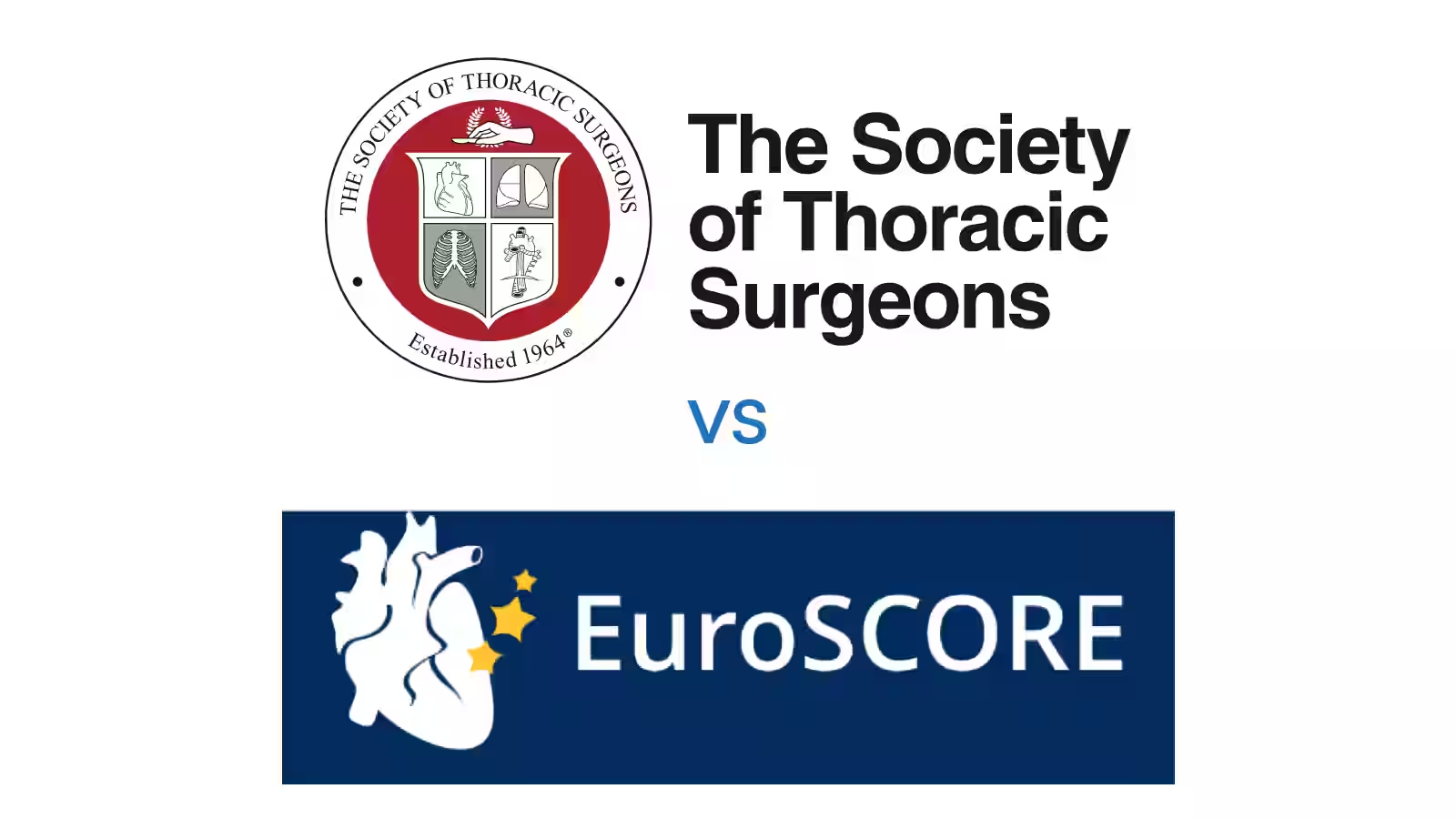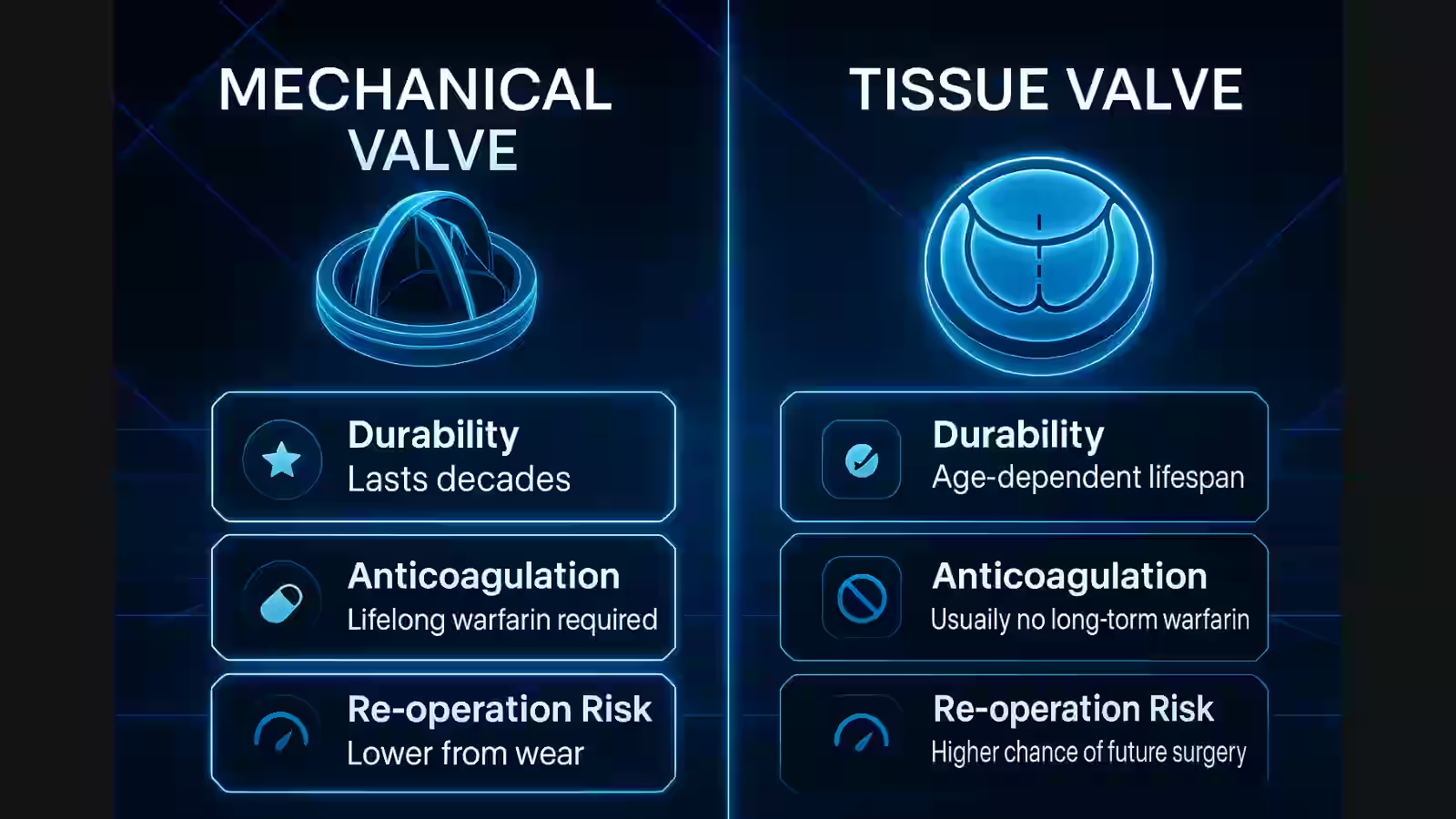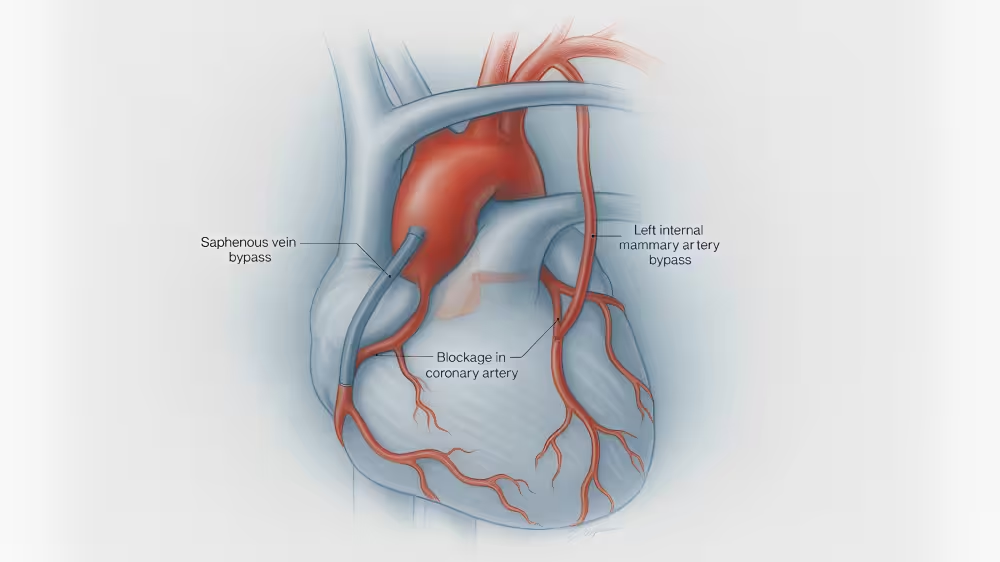Introduction
Heart failure does not mean the heart has stopped working - it means the heart is too weak or stiff to pump blood effectively. For many people, medications and lifestyle changes are enough to manage symptoms. But in some cases, heart failure progresses despite treatment. This stage is called advanced heart failure, and it may require surgery or even a heart transplant.
This guide explains how doctors decide when it’s time to consider surgery, what the main options are, and what patients and families can expect.
When Medications Are No Longer Enough
Most patients begin treatment with medications that:
- Reduce fluid buildup
- Lower blood pressure
- Help the heart pump more effectively
However, if a patient continues to have frequent hospital stays, severe symptoms at rest, or declining organ function despite taking medicines, doctors may recommend advanced therapies.
The American Heart Association (AHA) and American College of Cardiology (ACC) call this “Stage D Heart Failure.” At this point, surgery or transplant may be considered.
Surgical Options for Advanced Heart Failure
Coronary Bypass Surgery (CABG)
If blocked arteries are making the heart weaker, bypass surgery can restore blood flow. This may improve symptoms in select patients.
Valve Surgery
Leaking or narrowed heart valves can worsen heart failure. Valve repair or replacement may improve heart function and quality of life.
Left Ventricular Assist Device (LVAD)
An LVAD is a mechanical pump that helps the heart circulate blood. It can be used as:
- A bridge to transplant (keeping patients stable until a donor heart is available)
- Destination therapy (long-term support for patients not eligible for transplant)
Heart Transplant
When no other therapy is effective, a heart transplant may be the best option. According to the International Society for Heart and Lung Transplantation (ISHLT), carefully selected patients can live more than a decade with a new heart.
How Doctors Decide
Not everyone with heart failure needs surgery or transplant. Doctors consider:
- Severity of symptoms
- Other medical conditions (kidneys, lungs, diabetes)
- Patient’s age and overall health
- Personal goals and quality of life
Often, a multidisciplinary team including cardiologists, surgeons, and transplant specialists - meets with patients and families to review options.
Living With Advanced Heart Failure
Even if surgery or transplant is recommended, support doesn’t stop there. Patients benefit from:
- Cardiac rehab to regain strength
- Emotional support for both patients and families
- Regular follow-up to adjust medications and monitor progress
Conclusion
Advanced heart failure can feel overwhelming, but it is not the end of the road. With today’s surgical options - from bypass and valve repair to LVADs and transplant - many patients are living longer and fuller lives.
If you or a loved one is facing advanced heart failure, ask your care team whether surgical options should be considered.
---
At Verus, we’re here to guide patients and families every step of the way.
Learn more about how we help, or request a personalized MyVerus Report. You can also reach out directly by emailing us.









